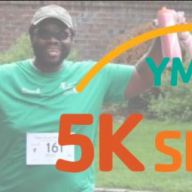By
Paul Weiss
The question I hear most often from parents of young
athletes is, “When should my child specialize in one sport?” Unfortunately,
there isn’t a simple formula or sport-specific answer to this question. Even worse,
there is evidence that success in sports at the age of 10 or 11 generally has
little correlation with later success when athletes are 17 or 18—the the
critical years for many athletes in terms of their physical development,
capacity for performance, and timing to participate in college athletics.
Some of the most interesting statistics are from a study
authored by Genadijus Sokolovas, USA
Swimming’s Director of Physiology. Sokolovas
compared the swimmers who achieved the top-100 times in their age group from the
10-and-under through the 17-18. Among the 17-18-year olds, only 10.3 percent of
girls and 13.2 percent of boys were listed in any event as 10-and-unders! For the 11- and 12-year-olds, the percentages
were 20.3 for girls and 12.6 for boys. Not until the 15-16 age group did the
percentages become statistically significant (49.7 for girls and 53.5 for boys).
As Sokolovas concluded, “Most of the future elite swimmers swim slower
than age-group champions, especially at ages until 15-16 years.”
So what does this
very low correlation between competitive success as a 10-11-year old and
success as a 17-18-year old tell us? It tells us that early competitive success
is the wrong predictor of future competitive success. There are several reasons
for this, some intuitive, some not. First, chronological age (CA) and maturational
age (MA) are quite variable in pre- and early-pubescent youth. Look at any 5th
grade classroom and you’ll see huge disparities in height, muscular
development, and signs of puberty. These variations in MA play a huge role in
early success athletically.
Second, and often
forgotten, is that athletic success as a young adult is dependent on continued
participation in sport! Often, a young child who is particularly successful at
10 or 11 years can become very frustrated when their peers close the gap in maturation (MA),
or when they simply stop improving that much against their own results. This
frustration can quickly lead to burnout. Similarly, young athletes who specialize
early on can become disenchanted with the rigors and discipline of training (when
“the game” simply doesn’t feel fun to play anymore).
The third
factor—and a hard pill to swallow—is that parental pressure to succeed is often
a key factor in mental exhaustion, stress, and feelings of entrapment on the
part of the child. The desire for empowerment, self-control, and personal choice
that leads to the pre-adolescent behaviors that parents find most vexing are
the same sources of dissonance and discomfort that the young athlete develops
towards competitive sports. Middle school age children start picking clothing
styles that irk their parents, they listen to “their” music, they adopt new
language, and pick new friends, all of which are manifestations of
independence. Their approach to sport
often mirrors this process. Parents who
have invested heavily in the development of their young
sports prodigy can find it very difficult to let their child make their own
decisions about participation as they get older, and this conflict can be a key
contributor to burnout and dropout.
Usually, if the
parent who asked the original question (“when should my child specialize in one
sport”) is still listening to me, and hasn’t started either snoring or weeping, they then ask, “Then
what can I do to help my child be successful? There must be something I can do
to help them develop athletically that won’t ultimately sabotage them as
athletes, or as people, right?”
The answer is yes,
but as with all parenting involvement, it requires a thoughtful approach and is
connected to the way you and your child approach decision-making
more generally.
If you’re goal is
to raise a child with a lifetime attachment to physical activity, and the best
shot at being “in the game” when their body is at the ideal MA for peak
performance, here’s what I recommend:
Make
participation in sports and physical fitness a priority in your family, at a
comparable priority level as music, art, reading, and other pursuits. Children
whose parents are physically active and maintain a robust work/play-exercise
balance are most likely to accept a similar school/sport-fitness balance and adopt
similar lifestyle values.
Let
your child prioritize “fun” in their sport choices. Fun does not equal “chaos.”
Youth sports should be organized. Sports experiences that are structured,
empowering, connect your child with an adult mentor, create strong
peer-relationships, and contain an age-appropriate balance of skill-acquisition/rehearsal/critique/performance
opportunities, are habit-forming and self-reinforcing for the young athlete.
The
first goal should be mastery of skills, not objective performance. Coaches who
provide feedback, reward success for skill acquisition, and do not discriminate
against late developers are unfortunately the minority. However, they are key
contributors to long-term attachment to sport for the young child. Age group
athletics is often problematic because it categorizes by CA, while MA is more
closely correlated
with immediate athletic success. Great coaches and sports parents understand
this, and can create qualitative measures of success, improvement, and
excellence that are positively reinforcing for the young athlete.
As children’s
bodies change and develop, particularly with the onset of puberty, their
physical abilities may similarly morph. A child who has a growth spurt and goes
from the 50th percentile in height to the 95th may
suddenly find that they are less suited to gymnastics, and more suited to basketball or volleyball. Exposure to multiple
sports throughout elementary and middle school can ease these transitions by
providing the child with the broadest possible athletic skill set and the
confidence to refocus on a sport that better suits them. Children should learn
how to swim, throw, catch, shoot, volley, swing, jump, and learn the rules,
rituals, strategies, and game play for the sports that employ these fundamental
movement skills. Your child is more likely to “get in the game” if they feel
confident about their basic skills and rules/play comprehension.
When
you child crosses the threshold into the tween years, it’s time to start
thinking about sport specialization. However, the focus should still be on
mastery of skills. Athletes in endurance sports are naturally going to spend
more time on conditioning, this includes swimming, running, cycling, and
rowing, but technique and form should remain the priority. Conditioning for all
sports is key to injury prevention, developing the strength to execute good
technique, and increased max and sustained efforts, but this should be
increased gradually through the middle and high school years. Find a coach who
considers their first obligation to be teaching and you’ve probably got the
right mentor for your young athlete.
Sports specialization, like picking a major in college, should be done in
the context of developing the whole person. Your child will be more likely to
continue to love sports and self-define as an athlete if they feel it’s their
choice to do so. Your job as a parent is to measure their enthusiasm, joy, and
self-concept. It’s the coach’s job to hold the stop-watch and keep statistics.
The most important advice I can give parents is to raise the whole child
and make sports a critical part of this whole. You’ll only know you’ve done
this right when your young-adult child is still making sports part of their
daily life, regardless of how elite their performance was as a young athlete. Then you’ve achieved what most parents regard
as their initial and primary goal for raising an active child: helping them be
a happy and healthy person.
Dr. Paul
Weiss is the Chief Program Officer at Asphalt Green, a comprehensive sports and
fitness organization located on the Upper East side, and a second campus
opening this spring in Battery Park City. Dr. Weiss, who holds
a PhD in Educational Psychology, has coached world class athletes and educated
coaches and trainers for over 20 years.
For more info on Asphalt Green visit
asphaltgreen.org. and for more info on sports classes and leagues for kids
around the city, visit www.newyorkfamily.com.




















